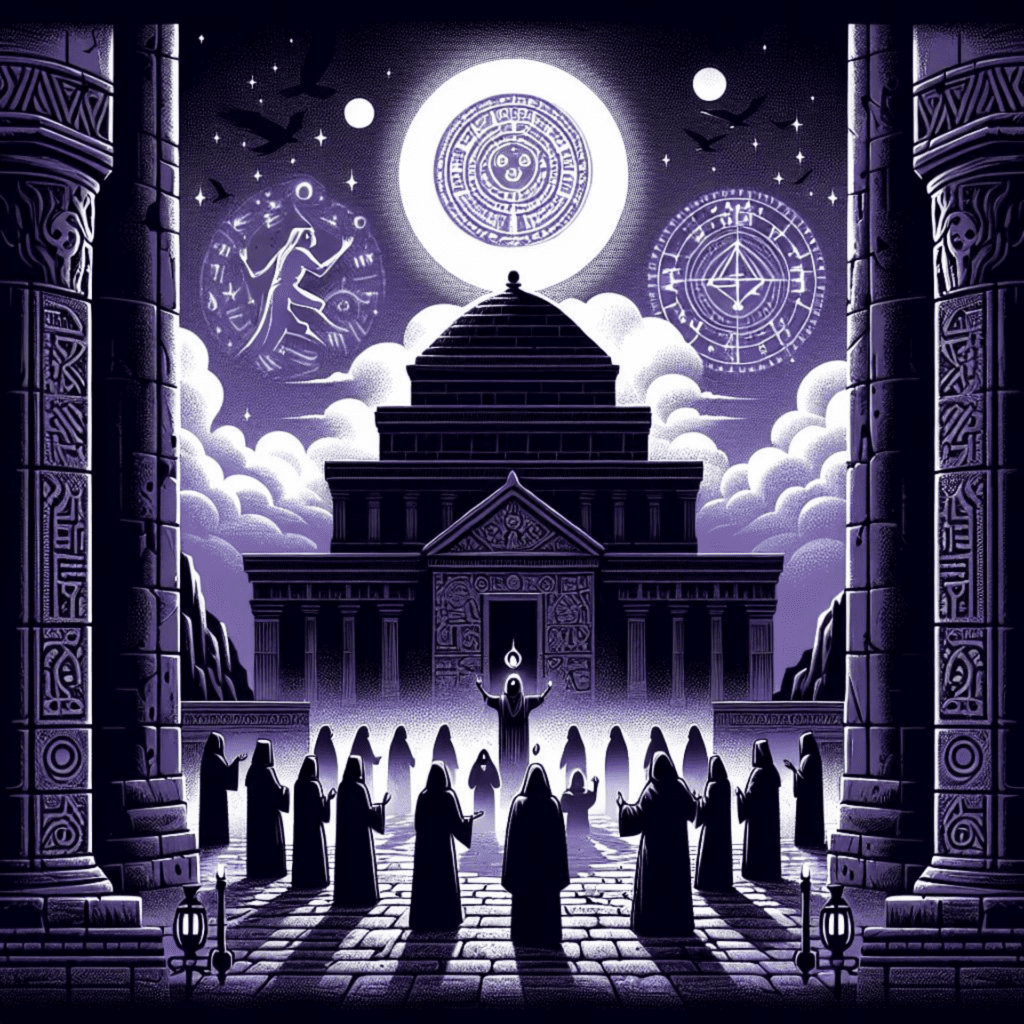Key Takeaways
- Jim Jones and Marshall Applewhite both exhibited strong charismatic leadership, attracting many followers through their compelling personalities.
- Both leaders used psychological tactics to manipulate and control their followers, often exploiting their vulnerabilities and need for belonging.
- Jonestown and Heaven’s Gate both promised utopian ideals and salvation, though their ideologies differed significantly.
- The impact on followers was profound, leading to tragic outcomes due to the leaders’ psychological control and manipulation.
- Understanding the warning signs of cult behavior is crucial in preventing future tragedies and protecting individuals from similar manipulation.
Introduction to Cult Dynamics: Jonestown and Heaven’s Gate
When we talk about cults, two names often come up: Jonestown and Heaven’s Gate. These groups, led by Jim Jones and Marshall Applewhite respectively, have become infamous for their tragic endings. But how did they get to that point? To understand this, we need to dive into the dynamics of cult formation and the characteristics of their leaders.
Overview of Cult Formation
Cults often form when individuals seek a sense of belonging, purpose, or understanding. They are usually drawn to a charismatic leader who promises answers to life’s big questions. This leader often presents a vision of a better world or a higher level of existence, which can be incredibly appealing.
In the case of Jonestown, Jim Jones promised a utopian society free from the racial and social injustices of the 1960s and 70s America. For Heaven’s Gate, Marshall Applewhite offered his followers a chance to ascend to a higher plane of existence, free from the troubles of the Earth.
Historical Context of Jonestown and Heaven’s Gate
Jonestown, officially known as the Peoples Temple, was established in the 1950s by Jim Jones. Initially, it was a progressive organization that attracted people with its message of racial equality and social justice. However, as time went on, Jones’s grip on his followers tightened, leading to the tragic mass suicide in Guyana in 1978.
Heaven’s Gate, on the other hand, was founded in the 1970s by Marshall Applewhite and Bonnie Nettles. This group was more esoteric, blending elements of Christianity with beliefs in extraterrestrial life. In 1997, the group gained notoriety when 39 members, including Applewhite, died in a mass suicide, believing they were destined to join a spaceship trailing the Hale-Bopp comet.

Leadership Comparisons: Jim Jones and Marshall Applewhite
Both Jones and Applewhite were charismatic leaders, but their styles and methods differed significantly. Understanding these differences is crucial in recognizing the patterns of cult leadership.
Charisma and Leadership Style
Jim Jones was a fiery orator, using his passion and conviction to inspire and manipulate his followers. He was known for his ability to speak directly to people’s fears and hopes, making them feel understood and valued.
Marshall Applewhite, however, had a more subdued style. He presented himself as a father figure, offering spiritual guidance and a promise of salvation. His calm demeanor and apparent sincerity drew people in, making them feel like they were part of something special.
Psychological Tactics Employed
Both leaders used psychological tactics to maintain control over their followers. Jones employed fear and paranoia, convincing his followers that the outside world was dangerous and that only he could protect them. This created a dependency on him and the community he had built.
Applewhite, in contrast, used a more subtle form of manipulation. He offered love and acceptance to those who felt lost or disconnected, making them feel like they had found their true home. He also used isolation, cutting followers off from the outside world to maintain control over them.
Promises and Ideologies
Both Jones and Applewhite promised their followers salvation, but their ideologies were quite different. Jones focused on creating a utopian society on Earth, free from the social and racial injustices of the time. His followers believed they were part of a revolutionary movement that would change the world.
Applewhite’s ideology was more otherworldly. He preached that Earth was a place of corruption and that true salvation lay in leaving it behind. His followers believed they were destined to ascend to a higher plane of existence, free from the limitations of the physical world.
Social and Cultural Influence
Both Jonestown and Heaven’s Gate had profound social and cultural impacts, serving as cautionary tales about the dangers of unchecked leadership and blind faith. Jonestown, in particular, highlighted issues of racial equality and social justice, as Jim Jones initially attracted a diverse group of followers with his progressive ideas. The tragedy that unfolded in Guyana served as a stark reminder of how easily good intentions can be twisted by a manipulative leader.
Heaven’s Gate, on the other hand, brought attention to the influence of new age beliefs and the susceptibility of individuals seeking spiritual fulfillment in unconventional ways. The group’s use of early internet platforms for recruitment also underscored the potential for technology to be used in spreading and reinforcing cult ideologies.
Economic and Daily Life Impact
The economic impact on followers of these cults was significant. Many members of Jonestown gave up their personal wealth and possessions to join the commune, believing they were contributing to a collective future. This left them financially dependent on the group and, ultimately, on Jim Jones himself.
Similarly, Heaven’s Gate members were encouraged to sever ties with their past lives, including their financial obligations. This often meant abandoning careers and families, leaving them without resources or support outside the cult. The daily lives of members were heavily regimented, with strict rules governing behavior, dress, and even diet, further entrenching their dependence on the group.
Key Warning Signs of Cult Behavior
Recognizing the warning signs of cult behavior is crucial in preventing future tragedies. Cults often exhibit specific characteristics that set them apart from legitimate groups or organizations.
Characteristics of Destructive Cults
Destructive cults typically have a charismatic leader who demands absolute loyalty and obedience. This leader often claims to have special knowledge or abilities, positioning themselves as the sole source of truth and guidance. Additionally, cults often isolate their members from outside influences, creating an environment where dissent is discouraged and conformity is enforced.

Another hallmark of cults is the use of manipulation and coercion to maintain control. This can include emotional manipulation, such as instilling fear or guilt, as well as more overt forms of control, like restricting access to information or resources.
Recognizing Manipulative Leaders
Manipulative leaders often present themselves as benevolent and understanding, making followers feel seen and heard. They may offer simple solutions to complex problems, appealing to individuals who feel overwhelmed or disillusioned. It’s important to be wary of leaders who demand unquestioning loyalty, discourage independent thought, or isolate their followers from outside perspectives.
Steps to Identify Potential Risks
To protect oneself from becoming involved with a cult, it’s essential to recognize potential risks and take proactive steps. Here are some strategies to consider:
- Research the group or leader thoroughly. Look for information about their history, beliefs, and any controversies or allegations against them.
- Trust your instincts. If something feels off or too good to be true, it probably is.
- Maintain connections with friends and family. Cults often try to isolate members, so staying connected to a support network can provide perspective and support.
- Be cautious of groups that discourage questions or critical thinking. Legitimate organizations welcome dialogue and differing opinions.
By staying informed and vigilant, individuals can protect themselves from falling prey to manipulative leaders and destructive groups.
Lessons Learned and Prevention Strategies
The tragedies of Jonestown and Heaven’s Gate offer valuable lessons and highlight the importance of prevention strategies. By understanding the dynamics of cults and the tactics used by their leaders, we can work to prevent similar events from occurring in the future.
Education and Awareness Programs
Education is a powerful tool in preventing cult involvement. By teaching individuals about the characteristics of cults and the tactics used by manipulative leaders, we can empower them to make informed decisions. Schools, community centers, and religious organizations can play a crucial role in spreading awareness and providing resources.
Moreover, public awareness campaigns can help dispel myths and misinformation about cults, making it easier for individuals to recognize warning signs and seek help if needed.
Psychological Support and Counseling
For individuals who have been affected by cults, psychological support and counseling are essential. This can help them process their experiences, rebuild their lives, and reintegrate into society. Counseling can also provide a safe space for individuals to explore their beliefs and values, helping them regain a sense of autonomy and identity.
Community and Law Enforcement Intervention
Community and law enforcement intervention can play a critical role in preventing and responding to cult activities. By working together, these groups can identify potential threats, support affected individuals, and hold leaders accountable for their actions.
It’s important for communities to foster open dialogue and collaboration, creating an environment where individuals feel safe seeking help and reporting concerns. Law enforcement agencies can also benefit from specialized training on cult dynamics and the legal implications of cult activities, ensuring they are prepared to respond effectively.
By implementing these strategies, we can work towards a future where individuals are protected from the dangers of cults and empowered to live fulfilling, independent lives.
Reflection on Jonestown and Heaven’s Gate
The stories of Jonestown and Heaven’s Gate serve as powerful reminders of the potential dangers posed by charismatic leaders and the cults they create. These events underscore the importance of understanding cult dynamics and the psychological tactics used to manipulate and control followers. By examining these tragic histories, we gain valuable insights into the vulnerabilities that can lead individuals to join such groups and the devastating consequences that can follow.
Societal Impacts and Legacy
The societal impacts of Jonestown and Heaven’s Gate are profound and lasting. Jonestown, in particular, brought attention to issues of racial equality and social justice, as Jim Jones initially attracted a diverse group of followers with his progressive ideals. The mass suicide in Guyana shocked the world and highlighted the need for greater awareness of the dangers posed by cults and their leaders.
Heaven’s Gate, meanwhile, showcased the intersection of new age beliefs and technology, as Marshall Applewhite used the early internet to recruit followers and spread his ideology. This demonstrated the potential for technology to be harnessed by cults, raising awareness about the need for vigilance in the digital age.
Modern Comparisons and Ongoing Relevance
While the specific circumstances of Jonestown and Heaven’s Gate are unique, the patterns of manipulation and control exhibited by their leaders can still be seen in modern groups. The tactics used by Jim Jones and Marshall Applewhite continue to be relevant today, as individuals and communities grapple with the challenges posed by charismatic leaders and their promises of salvation.

By studying these historical examples, we can better understand the warning signs of cult behavior and work to prevent similar tragedies in the future. Education, awareness, and community support are crucial in protecting individuals from falling prey to manipulative leaders and destructive groups.
Frequently Asked Questions
As we reflect on the stories of Jonestown and Heaven’s Gate, several questions often arise. These questions help us further explore the dynamics of cults and the factors that contribute to their formation and influence.
What was the main ideology behind Jonestown?
Jonestown was founded on the principles of racial equality and social justice. Jim Jones promised his followers a utopian society free from the injustices of the time. However, as his control over the group increased, his ideology became more authoritarian and manipulative, ultimately leading to the tragic mass suicide in Guyana.
How did Heaven’s Gate utilize technology to recruit members?
Heaven’s Gate was one of the first cults to harness the power of the internet for recruitment. Marshall Applewhite and his followers used early online platforms to spread their beliefs and attract new members. This allowed them to reach a wider audience and reinforce their ideology, demonstrating the potential for technology to be used in spreading cult messages.
What psychological tactics are common in cults?
Cults often use psychological tactics to manipulate and control their followers. These can include emotional manipulation, such as instilling fear or guilt, as well as more overt forms of control, like restricting access to information or resources. Charismatic leaders may also isolate their followers from outside influences, creating an environment where dissent is discouraged and conformity is enforced.
How can one differentiate between a cult and a legitimate group?
To differentiate between a cult and a legitimate group, it’s important to look for specific warning signs. Cults often have a charismatic leader who demands absolute loyalty and discourages independent thought. They may also isolate members from outside influences and use manipulation and coercion to maintain control. Legitimate groups, on the other hand, welcome dialogue and differing opinions and do not demand unquestioning loyalty.
Are there any current groups similar to Jonestown or Heaven’s Gate?
While there may not be groups identical to Jonestown or Heaven’s Gate today, the patterns of manipulation and control exhibited by their leaders can still be found in modern organizations. It’s important to remain vigilant and informed, recognizing the warning signs of cult behavior and taking proactive steps to protect oneself and others from potential threats.
***


Click the above icon to go directly to the Old Testament study guide.

Click the above icon to go directly to the New Testament study guide.
Here are links to my blog indexes, which will make it quick and easy for you to find another post to read.
∙ Blogs with a Spiritual Theme
∙ Blogs about Books I Like: Fiction
∙ Blogs about Books I Like: Nonfiction
∙ Blogs for Holidays and Other Special Days
∙ Miscellaneous Blogs
